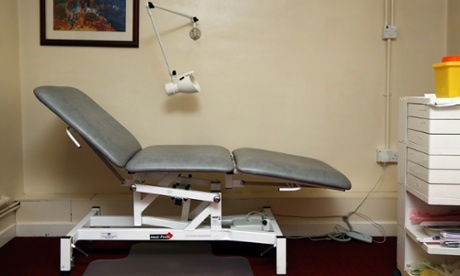
Patients will pay more to see a GP and find it harder to obtain an appointment as a result of government changes pursued without consultation, doctors have warned.
The Australian Medical Association (AMA) on Thursday expressed its strong dissatisfaction with the government’s revised co-payment policy, which includes a four-year freeze on Medicare rebates and big cuts to rebates for consultations shorter than 10 minutes.
Estimates about the potential impact of the changes vary. The AMA’s president, Brian Owler, said suggestions by News Corp on Thursday that gap fees for non-bulk-billed patients could rise to $45 within three years “could be a conservative estimate”.
“Over the past week, the AMA went out to its members and asked our GPs what they thought of the new co-payment proposal and what we received back were some of the angriest emails the AMA has received over any issue in a long time,” he said.
In the final parliamentary sitting week of the year Tony Abbott overhauled his GP co-payment budget measure, pushing ahead with a $5 reduction to Medicare rebates for adult non-concession patients, a cost that doctors could pass to consumers.
The prime minister also signalled changes to consultation times for particular Medicare rebate categories in a bid to encourage sessions longer than 10 minutes. Those changes were put into a regulation registered this week and are due to take effect in January.
Owler said the freeze on Medicare rebates until 2018 would put pressure on GPs because the costs for staff, rent for rooms, indemnity and sterilisation of equipment would rise over the same period.
He said the $3.5bn four-year budget saving from the revised package would “have to be passed on to patients”.
“It will hit their hip pockets and people need to understand that that is what these changes mean,” Owler said.
He said the changes to consultation times were estimated to take $400m a year out of the general practice sector.
Owler said the AMA did not support practices that were purely based on volume, but the 10-minute floor on consultation times would affect the ability of experienced GPs “to see the number of patients that they need to”.
“I think we’ve always had an issue in general practice of people being able to access their GP in the time that they would like to,” he said. “Now if GPs decide they have to spend extra minutes with a patient just to make up, to get up to the 10 minutes for rebate, that means there will be less slots available for consultation, they will be able to see less patients in that time period and that will mean that appointment times also have to increase and access will be more limited.
“Again, all of these impacts which really should have been considered before these announcements were made have not been.”
He said that should have been done, so GPs could alert the government to how the profession would react.
In the explanatory memorandum attached to the regulation, the government said the changes to Medicare items were intended to “better reflect the time that a GP spends with their patients”.
The health minister, Peter Dutton, said: “The overarching goal of these amendments is to ensure that Medicare expenditure accurately reflects the time a GP spends with a patient.”
He said they were designed to address “unjustified rapid throughput” of patients rather than appropriate care that took either a short or long time.
The explanatory memorandum said the nature of the regulation made it “inappropriate to consult”.
On Thursday, Abbott said the government had improved the Medicare policy since the May budget.
“Our health reforms – the co-payment – it’s a microeconomic reform. It’s about injecting a little bit more responsibility into the system,” he told 2GB.
